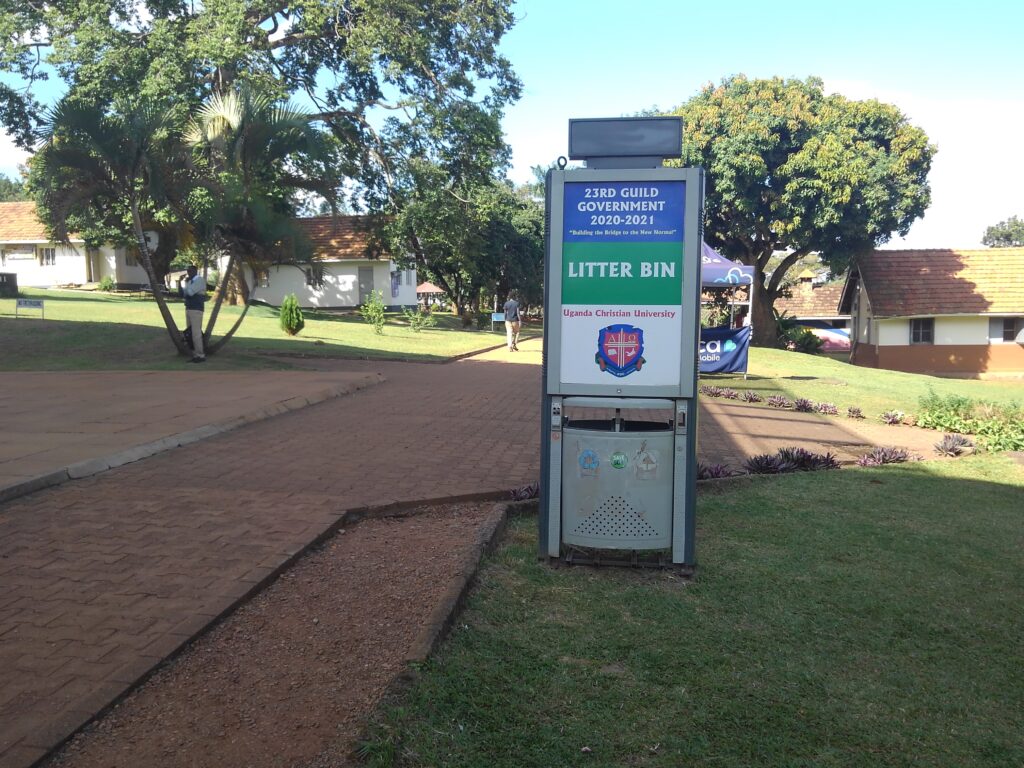By Kennedy Kitandwe
Uganda is a tale of natural beauty and environmental struggle, from the verdant shores of Lake Victoria to the busy streets of Kampala. Despite all these attributes, a hidden but ubiquitous menace looms large amid the nation’s rapid economic and urbanization growth: pollution from plastic waste.
According to the National Environment Management Authority (NEMA), Uganda has produced over 12,330 metric tons of PET plastics since 2018. In the Kampala Metropolitan Area, 135,804 tons of plastic waste are generated per year. Of this, 42% is uncollected through the value chain approach, and 43% is collected by the service providers. About 21,728 tons of plastic are burned, 47,457 tons are landfilled or dumped, 27,160 tons are retained on land, and 13,580 tons of plastic find their way into water systems. NEMA also affirms that as a consequence of plastic pollution, the country is seeing increased unexplained cancers, floods, poor waste quality, decreased soil fertility, poisoning of water bodies, death of livestock, fish, and wildlife through ingestion and entanglement, and above all, enhanced greenhouse gas emissions.
Established in 1997, Uganda Christian University (UCU), has precipitously achieved eminence as one of the dominant higher education institutions in East Africa. Surrounded by the thriving green scenery of Mukono, UCU’s main campus is a confirmation of the harmonious blend of modern education and environmental stewardship. The university’s obligation to preserve a beautiful and clean environment is manifested not only in its neatly landscaped grounds and well-maintained gardens but also in its progressive waste management strategy.
UCU has enacted a vigorous plastic waste control program that encourages students and staff to reduce, reuse, and recycle. This initiative, which is part of a broader sustainability agenda, focuses on sustainability at the university level. Through an array of campaigns and educational outreach, the university encourages a culture of eco-consciousness among its students and community.
“The environment is flawless and free from garbage, since every corner has a dustbin for throwing away plastics such as water bottles, polythene bags, and so on, hence making it advantageous for learning,” says Mugeni Fiona, a Social Work and Administration student.
Recycling bins are intentionally placed across the campus, and regular clean-up drives are organized to ensure that plastic waste is kept to a minimum. Furthermore, the university has undertaken substantial measures to ensure the single use of plastics, such as beverage containers, cutlery, and disposable plastic bags, hence promoting hygiene, convenience, and efficiency.
“There is good waste control in terms of plastics. The campus is generally appealing with an evergreen compound that seems propitious for lectures,” says Achola Goretti, a third-year mass communication’s student. Cafeterias and canteens on campus have adopted sustainable practices, such as the use of biodegradable packaging and advocacy for reusable containers.


